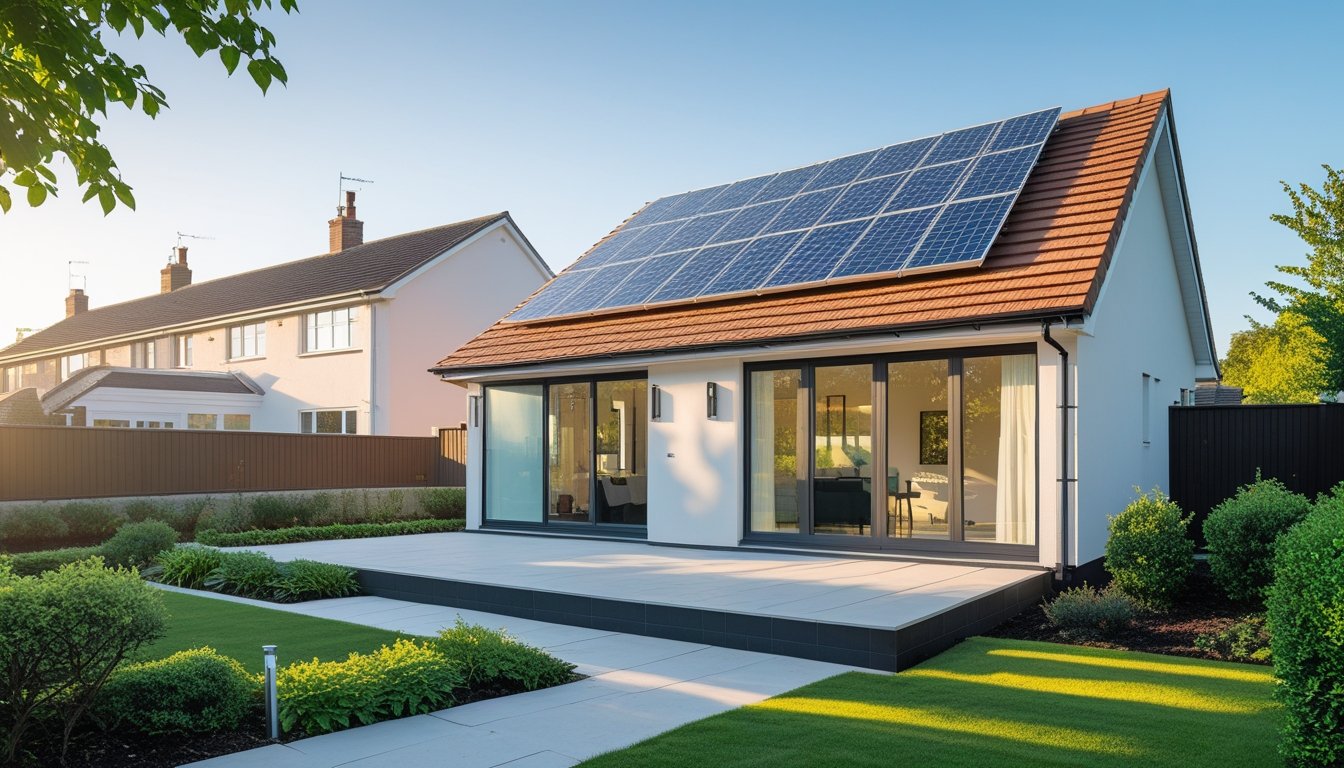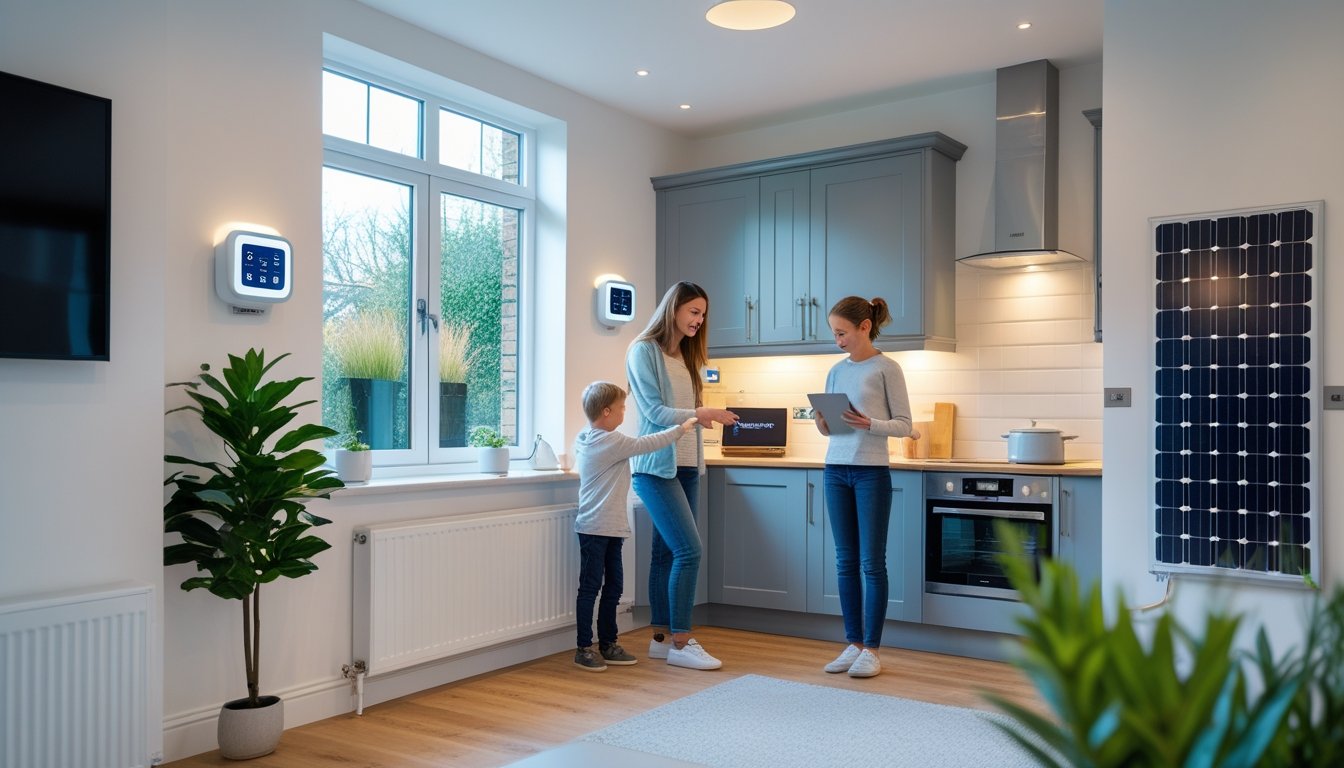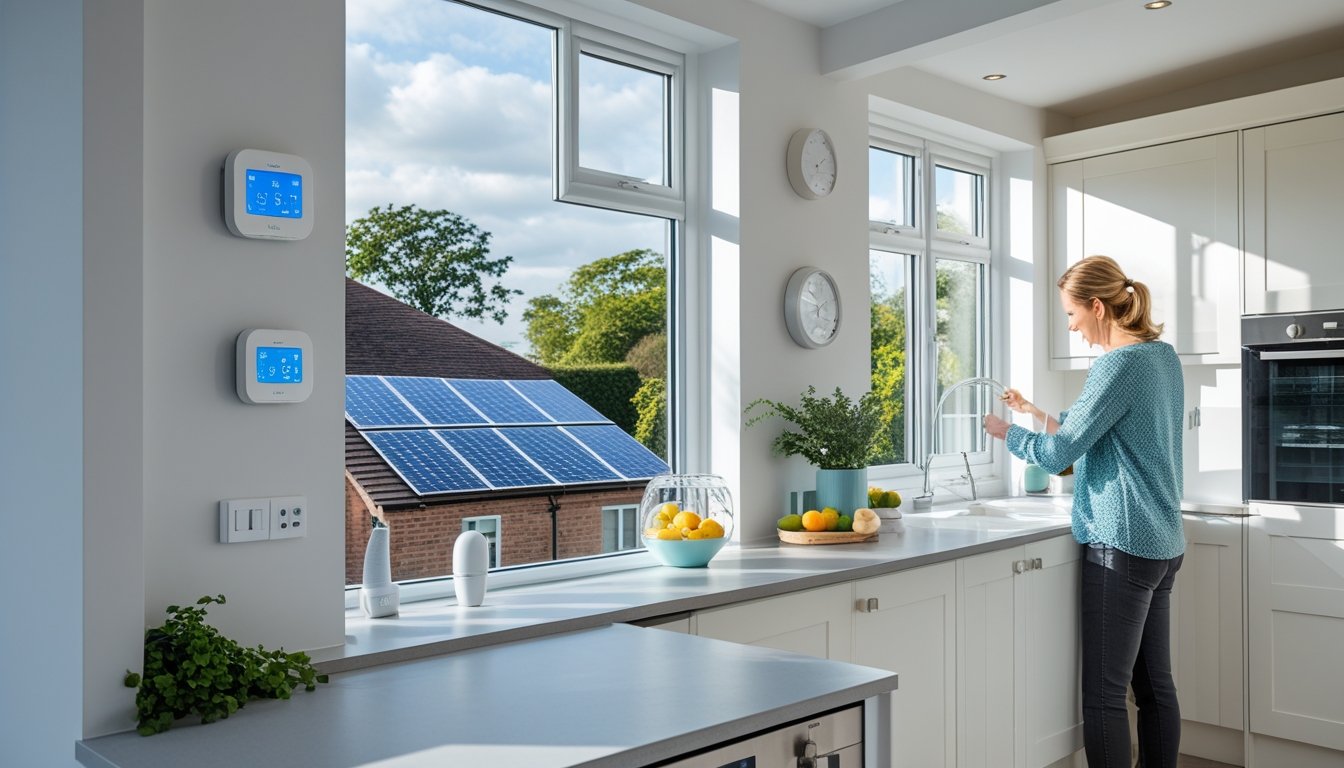Late updated: 04 Nov 2025 09:11
Written by: Oliver Bennett
Smart Tips For Improving UK Home Energy Efficiency: A Practical Guide
Improving home energy efficiency is imperative for reducing expenses and environmental impact. Across the UK, homeowners are seeking smart ways to conserve energy and lower utility bills. By implementing efficient practices and using modern technology, it's not only feasible to cut costs significantly but also to contribute positively to a more sustainable future. Upgrading insulation, switching to LED lighting, and utilising smart thermostats are some of the practical measures that can vastly improve energy efficiency.

We can harness several simple yet effective adjustments to achieve meaningful savings. The UK government also offers various grants and support schemes to assist homeowners in upgrading their property’s energy efficiency. These initiatives, combined with individual efforts, can transform homes into economically sustainable environments. Our environment thrives when we take steps to minimise energy waste, making these improvements beneficial for both personal finances and ecological health.
Exploring advanced strategies for long-term energy savings ensures continuity in optimising household operations. Leveraging technology advancements like smart home devices not only enhances convenience but also maximises energy savings. Key to boosting energy efficiency lies in a balanced approach of adopting new technologies and maintaining traditional energy-saving practices.
Key Takeaways
- Embrace technology and traditional methods to boost home energy efficiency.
- Government grants can aid in upgrading home energy systems.
- Consistent improvements lead to significant long-term savings.
Essential Smart Tips for Improving UK Home Energy Efficiency
In the UK, enhancing home energy efficiency isn't just about lowering energy bills but also about reducing our carbon footprint. We can achieve this by managing energy use smartly, upgrading appliances, optimising heating systems, and implementing cost-saving measures.
Managing and Reducing Energy Consumption
Effective energy management begins with understanding how we consume energy. Smart meters are a great tool for tracking real-time usage, helping us identify areas to cut back. Monitoring appliances and unplugging those not in use can lead to significant savings.
Another tactic is using power strips that can be turned off when appliances are not needed. Small changes like switching off lights upon leaving a room cumulatively impact energy conservation. Smart thermostats can automate heating, reducing unnecessary consumption.
Upgrading to Energy-Efficient Appliances and Lighting
Replacing old appliances with energy-efficient models is vital. Look for those with a high energy label rating (A++ or A+++), as these use less energy and save money. Smart appliances can communicate with each other, optimising energy use.
Switching to LED bulbs is a straightforward way to cut energy consumption significantly. They are up to 80% more efficient than traditional incandescent bulbs and have a much longer lifespan. Sensors and timers can automate lighting, ensuring it is used only when necessary.
Optimising Heating Systems and Controls
Heating systems are often the largest contributors to household energy use. Upgrading the boiler to a more efficient model can reduce energy bills and emissions. Zoning controls allow us to heat only the spaces occupied, avoiding waste.
Insulation and draught-proofing are essential for maintaining a consistent temperature. These not only prevent heat loss but also ease the load on heating systems, ensuring efficient operation. Installing smart thermostats offers precise control over heating schedules, tailored to our routines.
Lowering Energy Bills and Reducing Carbon Footprint
Several avenues exist for reducing energy bills while lowering our carbon footprint. Homeowners can explore energy grants and incentives available for improving efficiency. Solar panel installation is another way to generate renewable energy, offering long-term savings on electricity bills.
Regular maintenance of household systems ensures they function correctly, avoiding unnecessary energy consumption. By sharing these strategies with others, we contribute to a community-wide effort in reducing carbon footprints, creating a sustainable future for us all.
Advanced Strategies for Long-Term Energy Savings

For those of us in the UK looking to make a future-proof investment in energy efficiency, there are several advanced strategies to consider. By enhancing insulation, upgrading heating systems, and incorporating renewable energy, we can achieve substantial and lasting reductions in energy expenses.
Minimising Heat Loss with Insulation Improvements
Proper insulation is critical for minimising heat loss. We ought to assess our home's existing insulation quality, focusing on walls, roofs, and floors. Cavity wall insulation and loft insulation are effective ways to prevent heat from escaping. Installing double or triple-glazed windows can further improve thermal efficiency.
Using draught excluders around doors and windows helps seal any gaps that might let cold air in. These steps are essential because, during colder months, poor insulation leads to significant energy waste, driving up heating bills. Investing in quality materials and ensuring proper installation makes a noticeable difference in keeping our homes warm and energy-efficient.
Modernising with Efficient Boilers and Heat Pumps
Upgrading to a modern boiler or heat pump can significantly enhance our home's heating efficiency. Condensing boilers, for instance, extract more heat from fuel by recovering waste gases, potentially improving efficiency by up to 90%. This system is more economical over the long run compared to older boiler models.
Heat pumps, including air-source and ground-source variants, offer another efficient heating solution. These systems extract heat from the environment, making them a cost-effective and sustainable option even in the UK climate. While installation requires an upfront investment, the ongoing savings on energy bills justify the expense for many homes. Energy suppliers like SSE often offer advice and incentives for modernising heating systems.
Incorporating Renewable Energy Solutions
Incorporating renewable energy solutions such as solar panels can dramatically reduce our reliance on traditional energy sources. While the UK might not be known for endless sun, solar panels still generate substantial energy on cloudy days. We can store excess energy generated during daylight with battery systems, reducing our reliance on grid-based power.
By integrating wind turbines in areas with sufficient wind exposure, we contribute further to clean energy generation. Both solutions offer great potential for reducing energy costs and environmental impact. Financial incentives, including those from government schemes, can help to offset initial costs, making renewable energy a viable option for long-term savings.
Frequently Asked Questions

Improving home energy efficiency involves multiple strategies, from insulation and appliance upgrades to smart technologies and lighting solutions. Each aspect plays a significant role in reducing energy consumption and lowering bills.
How can I effectively insulate my home to retain heat?
Maximising insulation in walls, roofs, and floors is essential for retaining heat. Materials like mineral wool and polyurethane can be effective. Sealing gaps around windows and doors also prevents heat loss, improving overall comfort during colder months.
What are the best practices for upgrading to energy-efficient appliances?
When upgrading, seek appliances that carry the highest energy efficiency ratings. Look for the Energy Saving Trust Recommended label. Regular maintenance, such as cleaning filters, ensures appliances run efficiently, further reducing energy use.
Which type of energy-efficient windows should I install to reduce heat loss?
Double and triple-glazed windows are highly effective in reducing heat loss. Low-emissivity (Low-E) glass adds an additional layer of efficiency by reflecting heat back into rooms while letting in light.
Can smart thermostats significantly reduce my energy consumption?
Smart thermostats offer precise control over heating schedules and can adapt to our daily routines. By optimising heating times and temperatures, they help reduce unnecessary energy use, leading to lower bills.
What are the benefits of LED lighting compared to traditional bulbs?
LED bulbs use significantly less energy and have a much longer lifespan than incandescent bulbs. They provide the same level of brightness while offering improved efficiency and cost savings on energy bills.
How does solar panel installation impact household energy efficiency?
Solar panels harness renewable energy from the sun, reducing reliance on grid electricity. By generating our own power, we lower energy bills and decrease our carbon footprint, contributing to a more sustainable home environment.
